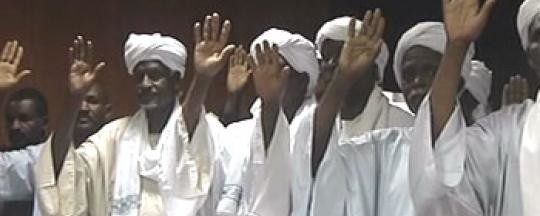Mohamed Issa Aliu, Chairman of the Shura Council of the Rizeigat Arab tribe in Sudan’s East Darfur state has described tension between the Rizeigat and Misseriya Arab nomadic tribes in Abu Jabra and Meiram localities as “normal”.
On Thursday, tension between Um Salama section of the Rizeigat tribe and El Fayarin section of the Misseriya tribe mounted following the alleged killing of four persons during tribal clashes last week.
Calm was reported over the last two days. However, a local source indicated that the Rizeigat tribe was mobilizing for a fresh attack on Meiram locality in West Kordofan.
The tribal leader attributed the recent escalation between the two feuding tribes to unresolved differences during previous peace conferences.
“A general peace conference was held over the last four years and mini conferences were also organized in which commitments were made by the two sides, but there was no follow-up until now,” he said.
In an interview with Radio Tamazuj, Aliu blamed the recent tension on the spread of arms and government’s lack of commitment to bring an end to tribal feuds in the area.
Aliu disclosed that a peace conference scheduled to take place on 27 January in Abu Jabra locality has been abruptly postponed for unclear reasons.
The Shura leader accused the government of lacking interest in resolving tribal disputes. He urged the authorities to pressure the two sides so that blood money is paid as agreed upon during previous peace conferences, while calling for deployment of security forces in the area where standoff is predicted to erupt.
Issa Aliu emphasized native administration’s role in conflict resolution instead of rushing to deploy security forces, which he said has failed to bring an end to tribal conflicts between tribes living in East Darfur and West Kordofan.
“The native administration is currently weak because it has been politicized, which made it unable to contain the recent tension between the two tribes,” he said.
He further said that proliferation of arms in the hands of local residents in the area started during the conflict between the Sudanese government and the then Southern Sudanese rebels.
He also slammed the Khartoum government for arming some tribes in the area.




